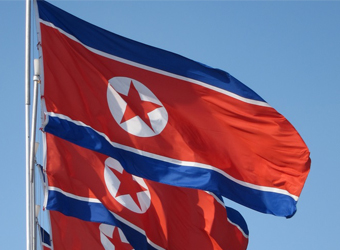The Washington Post reports that Egypt clandestinely ordered more than 30,000 rocket-propelled grenades from North Korea in contravention of sanctions last year and that the deal was halted at the last minute by the United States.
The discovery was later described in a UN report as the “largest seizure of ammunition in the history of sanctions against the Democratic People’s Republic of Korea.” A series of secret deals between the two countries prompted the US to complain to Egypt and the Trump administration to decide over the summer to freeze or delay nearly $300 million in military aid to Cairo.
US intelligence tracked the weapons ship to Egypt in the summer of 2016 as it left North Korea with a North Korean crew and sailed westward toward the Gulf of Aden and the Suez Canal.
The US sent a secret message to Egyptian authorities to alert them. The vessel flew Cambodian colors with a heavy tarpaulin covering its unknown cargo.
Examination by U.N. experts revealed another deception apparently intended to fool the weapons’ Egyptian recipients: Each rocket was stamped with a March 2016 manufacturing date, months before the ship sailed. But the labels, like the ship’s manifest, were false.
“On-site analysis revealed that they were not of recent production,” the U.N. report said, “but rather had been stockpiled for some time.”
The UN report concluded that huge number of weapons, together with the fact that they were clearly intended for large-scale military training, indicated that the arms were intended for the Egyptian army.
Egypt responded that it abides by all UN Security Council resolutions.
But a UN investigation revealed that Egyptian businessmen ordered the rockets worth millions of dollars for the Egyptian army. Because of the heavy sanctions against North Korea, they invested great efforts in keeping the deal secret.
The Post quoted Andrea Berger, a North Korea specialist and senior research associate at the Middlebury Institute of International Studies at Monterey, California, as saying that Egypt still has diplomatic ties with Pyongyang and military ties dating back to the 1970s.
“Egypt was a consistent North Korean customer in the past,” Berger told the Post. “I would call them a ‘resilient’ customer today.”
The alleged incident is being used to highlight difficulties in using economic sanctions to pressure Pyongyang to give up its nuclear capabilities.
The Post quotes analysts as saying that North Korea mitigates the effect of sanctions by selling cheap arms to countries such as Burma, Cuba, Syria, Eritrea and at least two terrorist groups, as well as US allies such as Egypt.
The paper described the market as “a kind of global eBay for vintage and refurbished Cold War-era weapons, often at prices far lower than the prevailing rates.”
The report said that Syria recently bought protective chemical weapons gear from North Korea and that Hezbollah, a “long-term customer”, has acquired North Korean rockets and missiles.
Source: Israel national news


